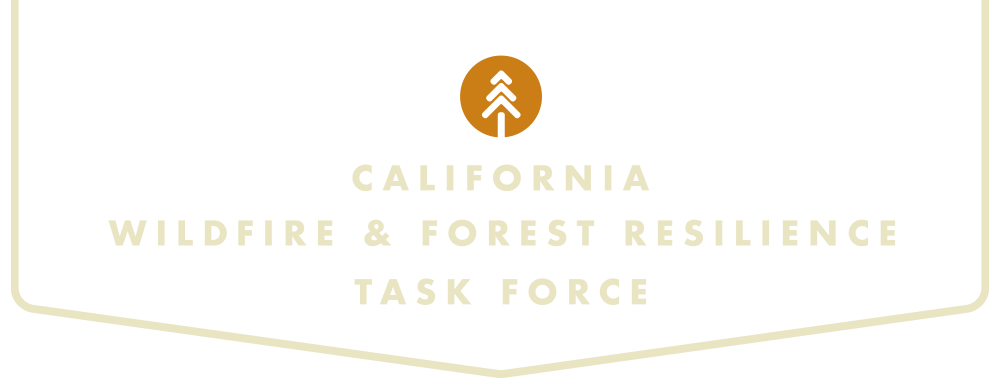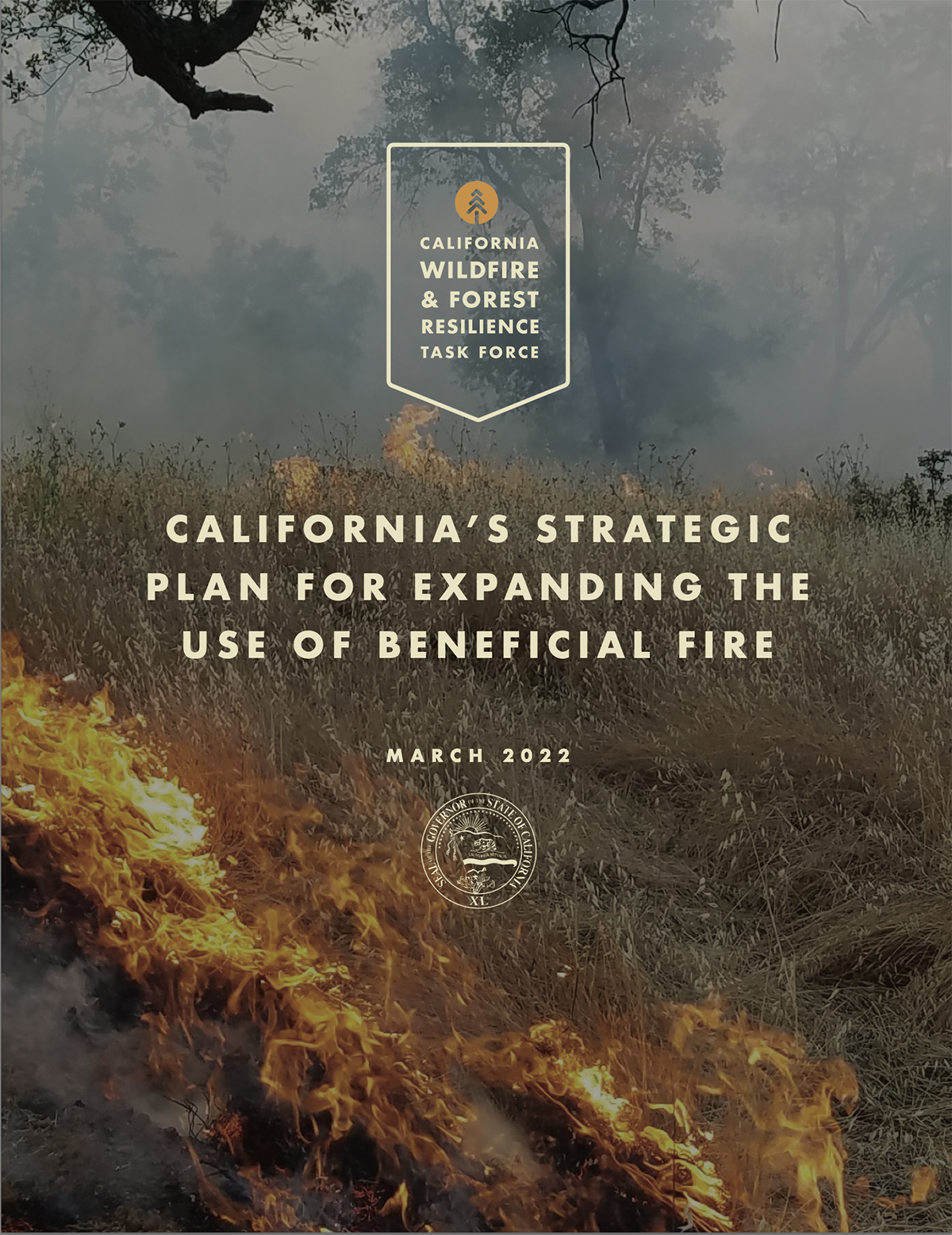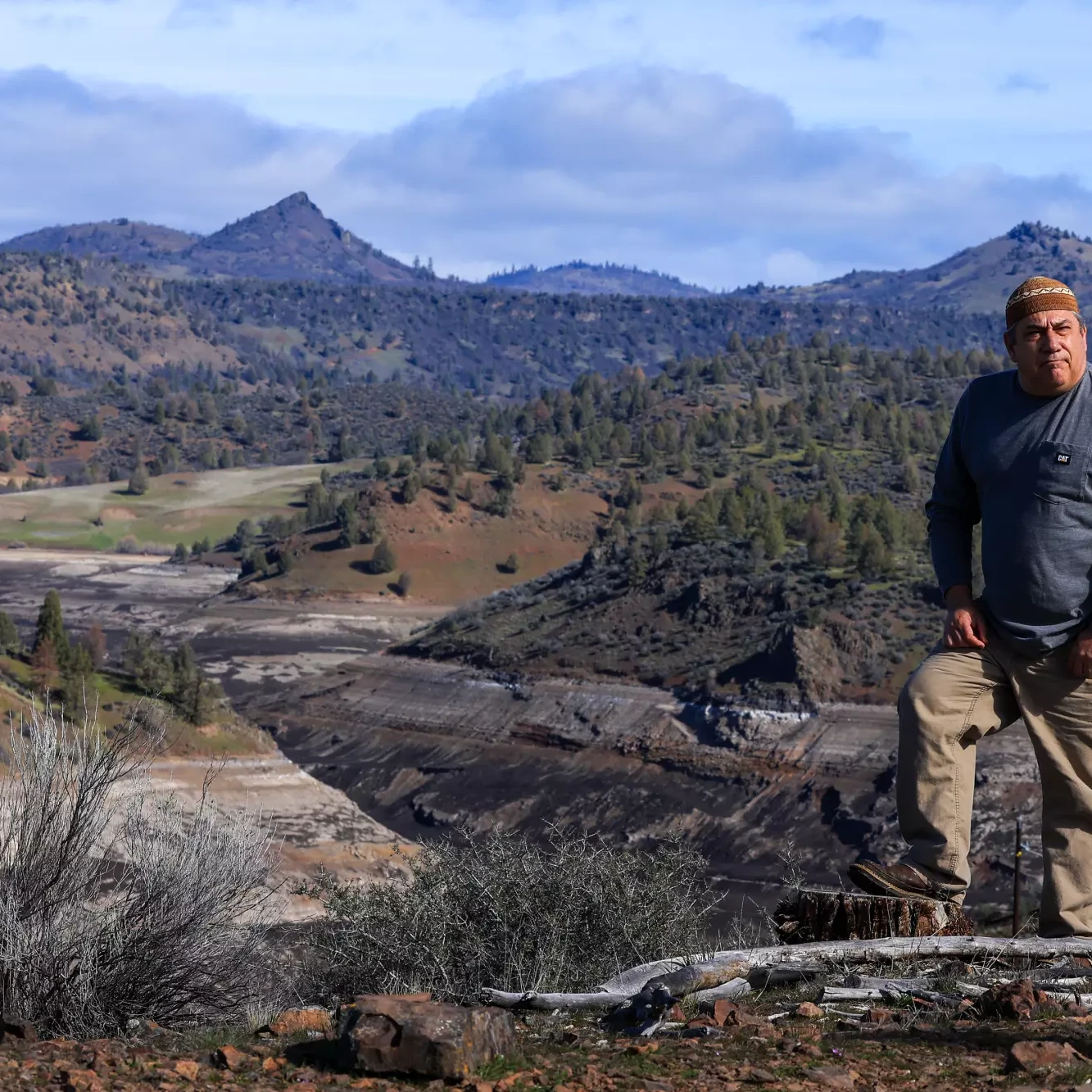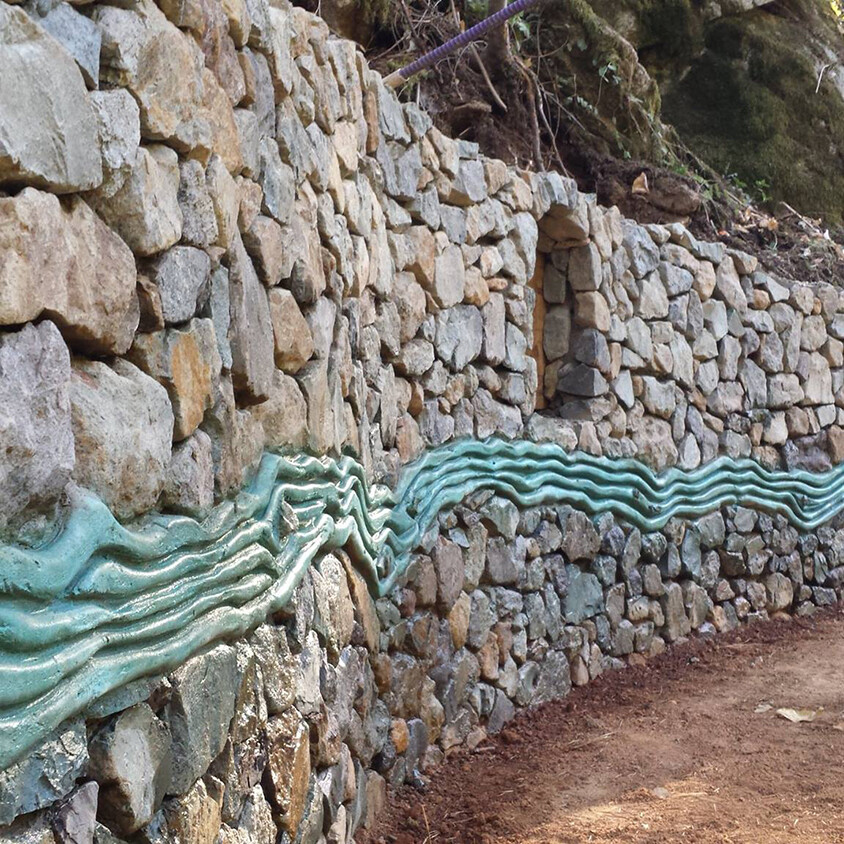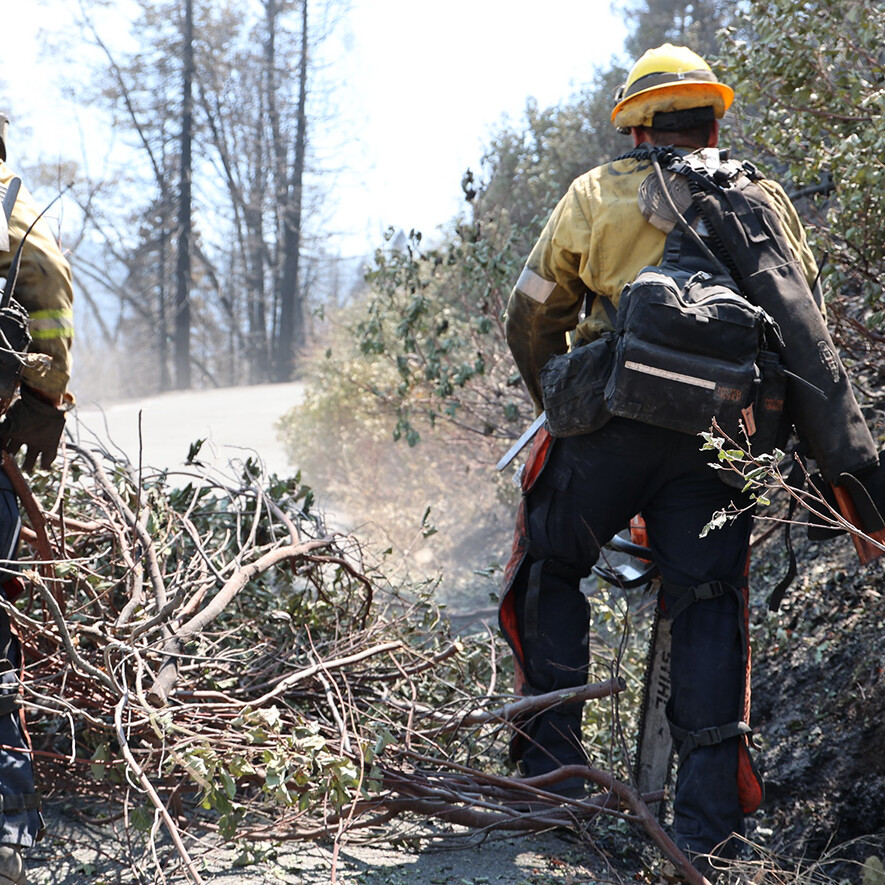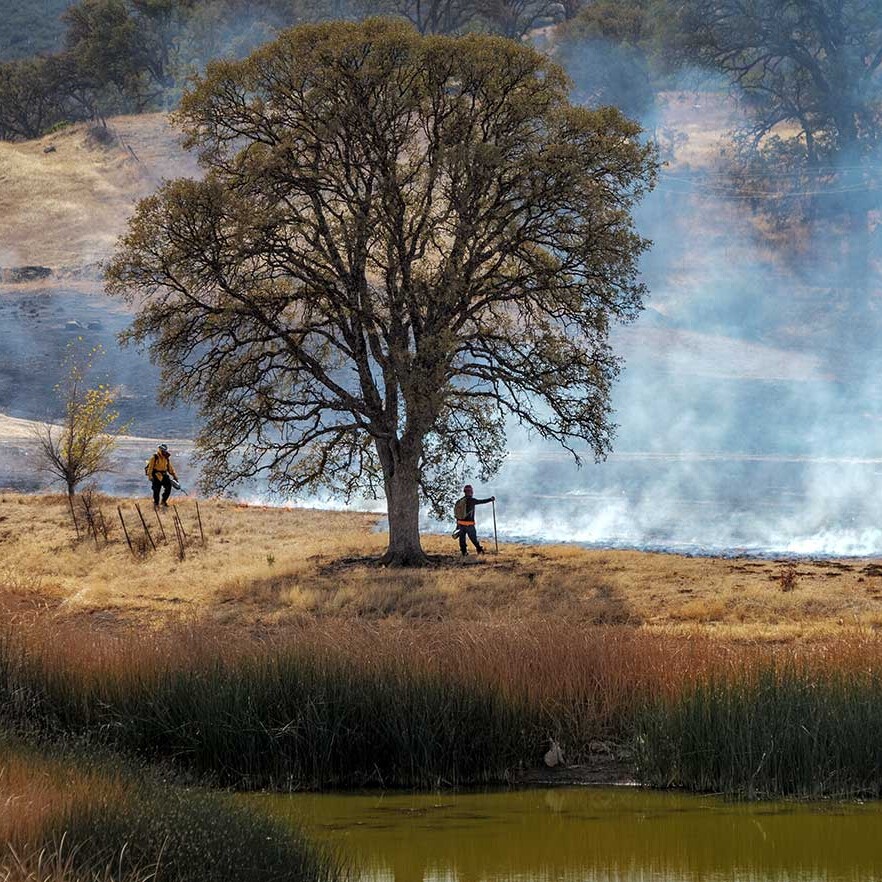Beneficial Fire
While beneficial fire has been used as a vegetation management tool across California for many years, several factors have limited its widespread use including resource availability, liability issues and public acceptance of fire and smoke. Federal, state and local agencies, tribal governments, non-governmental organizations and landowners understand the urgency in overcoming these barriers to increase the use of beneficial fire. These entities come together in the Beneficial Fire Work Group, and are actively collaborating to get more “good” fire on the ground.
UPDATES
resources
Guidance
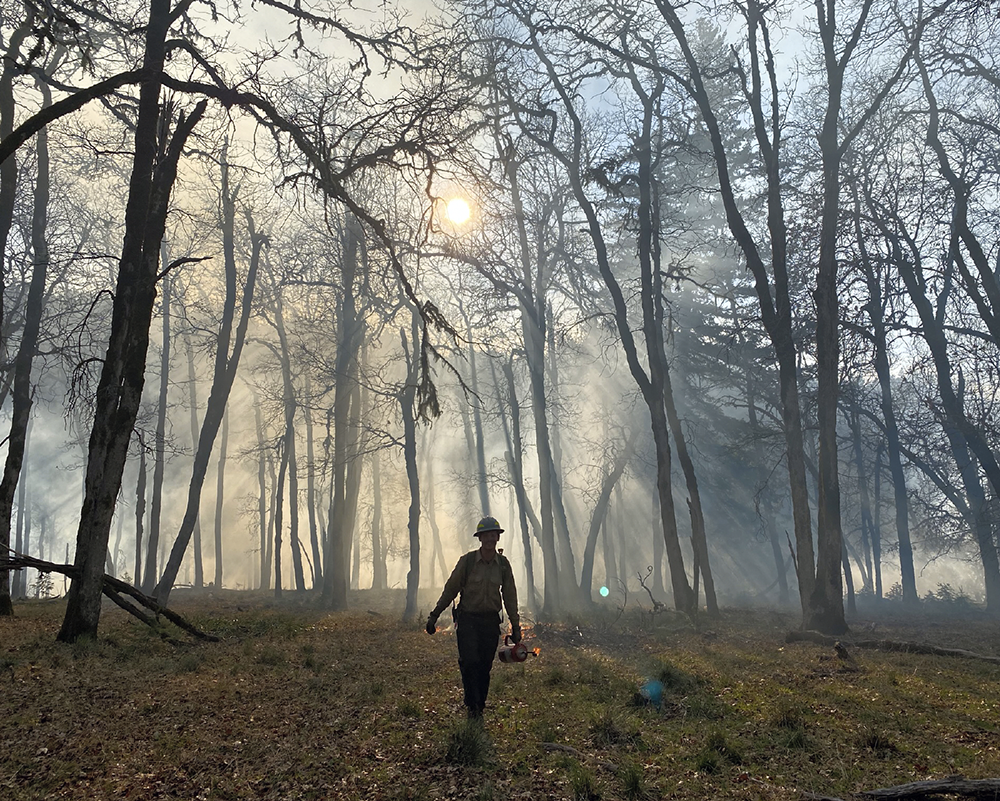
The Prescribed Fire Claims Fund
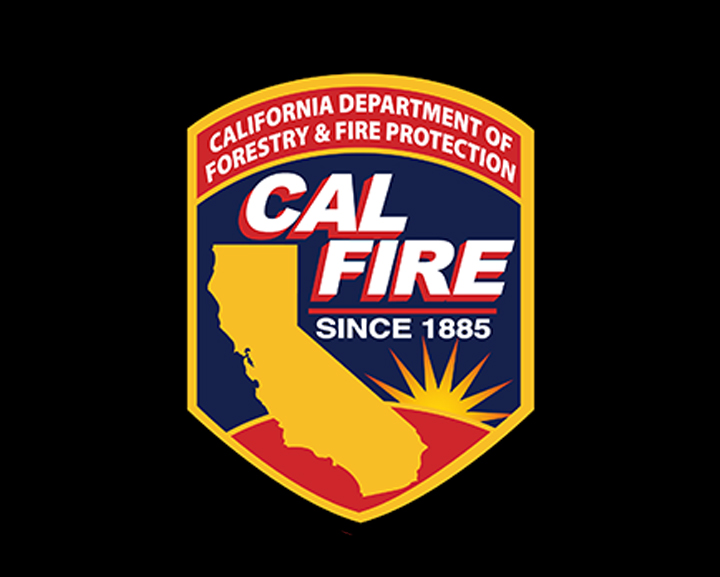
CAL FIRE Prescribed Fire Program
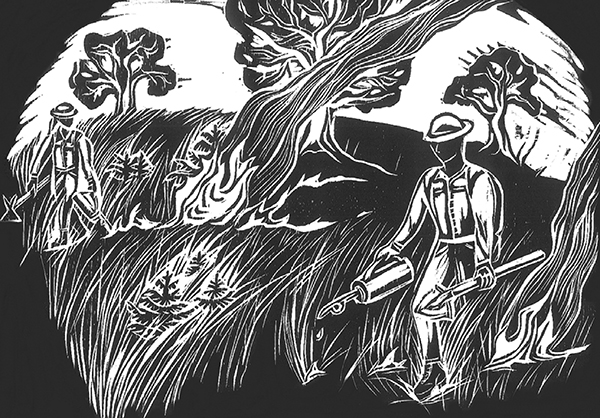
Prescribed Fire Burn Boss State Certification Program
Find Your Local Prescribed Burn Association and learn more about prescribed fire at the California PBA website
REPORTS
Can Prescribed Fires Mitigate Health Harm? A Review of Air Quality and Public Health Implications of Wildfire and Prescribed Fire (American Lung Association, May 2022)
Good for the Forest. Good for the Future. Prescribed Fire Storymap (USFS 2021)
Audio: CAP Radio Interview, May 11, 2020. California’s Strategic Plan for Expanding the use of Beneficial Fire
TOOLS
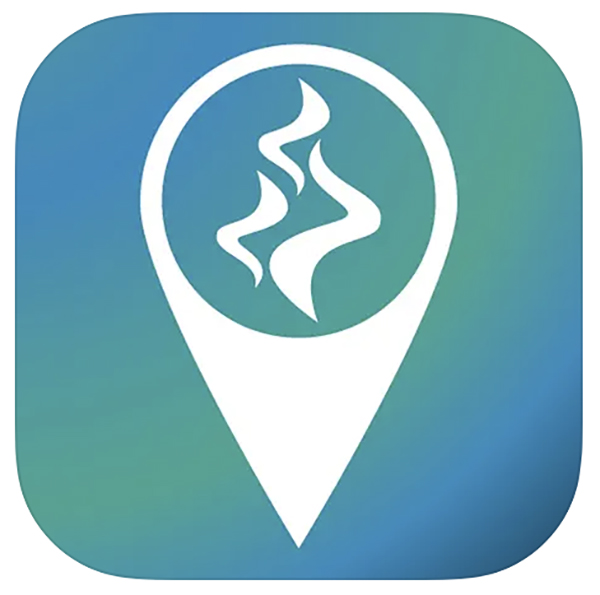
The California Smoke Spotter app provides a comprehensive overview of the latest information on prescribed fires, projected smoke impacts, current air quality and educational material.
Prescribed Fire Information Reporting System (PFIRS) shows current ignitions across California.
VIDEO
Learn about the Strategic Plan For Beneficial Fire from the Work Group team.
Don Hankins of the Indigenous Stewardship Network on the importance of cultural burning.
Work Group: Beneficial Fire
Partnering Organizations
Work Group leads
CAL FIRE – Frank Bigelow; Key Action Lead
CAL FIRE – Jamie Sammut; Key Action Lead
CAL FIRE – Mark Rosenberg; Key Action Lead
CAL FIRE – John McCarthy; Key Action Lead
CAL FIRE – Christine McMorrow; Key Action Lead
CAL FIRE – John Morgan
CAL FIRE – Chris Keithley
CAL FIRE – Robin Bellows
CAL FIRE – Ray Gutierrez
CAL FIRE – Jason Butcher
CAL FIRE – Jonathan Fitch
CAL FIRE – Gregg Bratcher
CAL FIRE – Alan Talhelm
CAL FIRE – John Melvin
CAL FIRE – Justin Britton
CAL FIRE – Alan Talhelm
Fire Restoration Group – Craig Thomas
U.S. Forest Service – Stephen Fillmore
CAP COA – Larry Greene
North Coast Air Quality District – Debra Harris
Placerville Air District – Ann Hobbs
Karuk Tribe – Bill Tripp
The Nature Conservancy – Dan Porter
CSU Chico – Don Hankins
UC Agriculture & Natural Resources – Lenya Quinn-Davidson
Tall Timbers – Morgan Varner
The Watershed Center – Nick Goulette
The Nature Conservancy – Angel Hertslet
Placer RCD – Kerri Timmer
U.S. Forest Service – Danelle Harison
Tamien Nation – Quirina Geary
Tamien Nation – Ronda Esparza
CARB – Amy MacPherson
CARB – Jason Branz
CNRA – Forest Schafer
CNRA – Sky Biblin
North Coast Air Quality District – B. Wilson
The Nature Conservancy – Katie Pofahl
CAPCOA – Sadie Gibbs
CA Association of RCDs – Sierra Riker
Communication Consultant – Ron Gray
Len Nielson, CAL FIRE
Lance Noxon, U.S. Forest Service
Work Group Facilitator
Hannah Hepner, The Watershed Center
Key Actions Assigned:
1.18 – 1.27, 2.32
